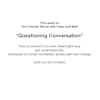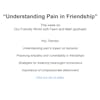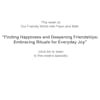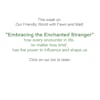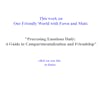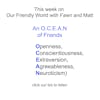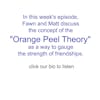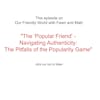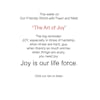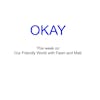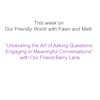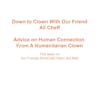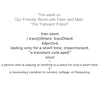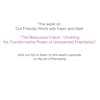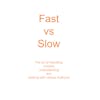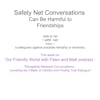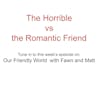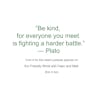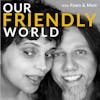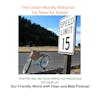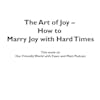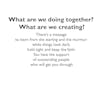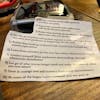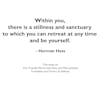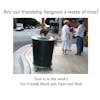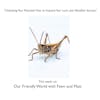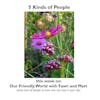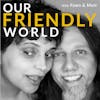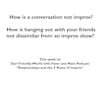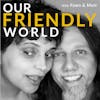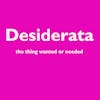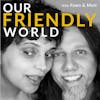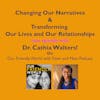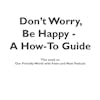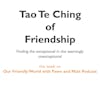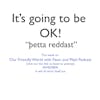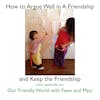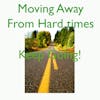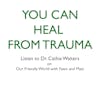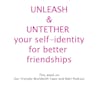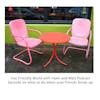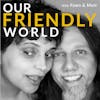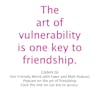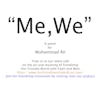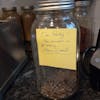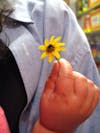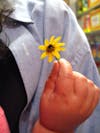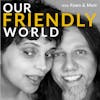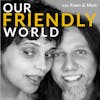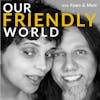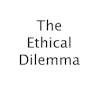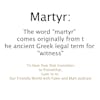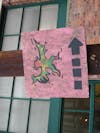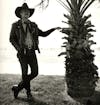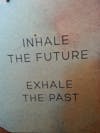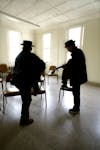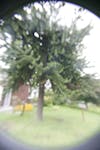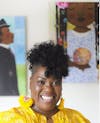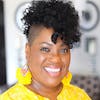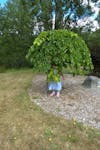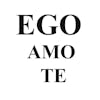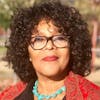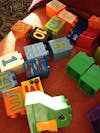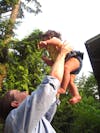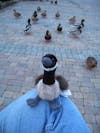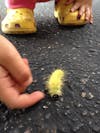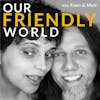
The Art of Community with Maya Breuer

One of our favorite friends is back! Maya Breuer joins us again as we further explore the art of community.
We begin with a quote from the movie, "Your Name": "They assemble and take shape. They twist, tangle, unravel now and then, break and reconnect. That's what a union is; what time is."
We've been really delving into the art of community here and really trying to hone in on exactly what community is and how we can have it, how we can create it, how we can continue with it, with the changing times and everything.
Community is society, it's a fellowship, it's a kind of public spirit and to an embrace, a place of connection, a place where we are not alone, a place of enrichment. It is a home of safety and protection. It is about being stronger and happier and having the sense of wellbeing. It is about being heard and getting acknowledged and VALUED.
It is about feeling supported, respected, cared for and having this feeling of love for each other. It is about compassion and love.

One of our favorite friends is back! Maya Breuer joins us again as we further explore the art of community.
We begin with a quote from the movie, "Your Name": "They assemble and take shape. They twist, tangle, unravel now and then, break and reconnect. That's what a union is; what time is."
We've been really delving into the art of community here and really trying to hone in on exactly what community is and how we can have it, how we can create it, how we can continue with it, with the changing times and everything.
Community is society, it's a fellowship, it's a kind of public spirit and to an embrace, a place of connection, a place where we are not alone, a place of enrichment. It is a home of safety and protection. It is about being stronger and happier and having the sense of wellbeing. It is about being heard and getting acknowledged and VALUED.
It is about feeling supported, respected, cared for and having this feeling of love for each other. It is about compassion and love.
TRANSCRIPT:
Transcript-285
[00:00:00] Maya: [00:00:00] Her mother taught me the way she taught her. Nice. But I w as I got as my mother and I reconnected years later, she taught me special things because she was a terrific cook, but it was my grandmother who led the way. Nice. Yeah.
Fawn: [00:00:16] Not you Matt, right. Those ladies did not like anything to do with like the home,
Matt: [00:00:24] the day, every single meal.
Put it in the oven for 350 for an hour
Maya: [00:00:30] now. Oh, was it? Uh, oh no, they just
Fawn: [00:00:36] to this day, like Matt has been Matt and I have been together longer than he's been with his family. And to this day he's still traumatized and we can't eat certain things because it makes him remember childhood. So, you know, I'm middle Eastern.
So of course there's fresh beets and garlic and onions. And. And, you know, like raw veggies and all kinds of stuff. And he's like, I [00:01:00] can't do that. I can't have the watermelon, I can't have this. I can't have watermelon,
Matt: [00:01:04] had nothing to do with my family, but it had to do with your childhood and your stuff stuck on it.
But
Maya: [00:01:10] you know, it, it really takes a while to get over childhood stuff. I mean, how much longer is it going to take? How much longer is it going to take? Sometimes you never get over it. You know, when I was kid. I grew up with my grandparents and my aunt. And they would do this thing where all the, if, if other people came every other fancy stuff got shared and then like, like I re I like today I can not eat a broken cookie because we, they would go to the market and buy bags of broke.
You know, you could buy a bag of broken cookies. I love the
Fawn: [00:01:50] Dale
Maya: [00:01:51] bakeries and that was for the kids. And then we also had bagged fruit. I can't eat bagged fruit or broken [00:02:00] cookies. Oh Maya. We need, I could eat it, but I'm just, um, what do you call it? I'm rebelling. I must have a whole cookie. I must have a fresh piece of fruit that does not isn't stapled in a bag and at a lower price
Fawn: [00:02:16] you deserve, you deserve.
A whole cookie.
Maya: [00:02:20] I deserve a whole cookie and they, and, um, you know, they were my grandparents. They will lovely. I realized they were just trying to make ends meet, but still, I
Fawn: [00:02:30] didn't like it. I wonder about Elle and Alegra because that's what we do when we go to the store, we go for the bags that are like unacceptable.
Maya: [00:02:40] Yeah. But that's okay. I mean, I raised three kids and I did all kinds of things to survive. However, if you came to my house, whatever my children had, you had. Yes, that was the thing. It wasn't anything wrong with the food. The stuff tasted good. It's just that there was [00:03:00] separate, we were separate from guests.
There was a
Fawn: [00:03:03] hierarchy. Yeah, which actually leads us to the show today, because one of the things we talk about, one of the principles is the inner circle and the hierarchy that exists in community and how to not have that and how to have that anyway. Okay. Well, um, well I'm so glad you're here. Good morning.
Um, let's
Maya: [00:03:24] nice little chat.
Fawn: [00:03:25] I love it. I love it. Actually. I was recording it for a test, so I'm going to stop.
Transcript-286
[00:00:00] Fawn: [00:00:00] Oh, you always liked to be on time, Matt always right. You get super mad at me. If I'm not. If I go against the timeline, it is. Hi everybody. Guess who's here. We have our beautiful friend, Maya, Maya Breuer is back with us today. You remember from our first episode with her, just a few episodes back, she is back with us.
Thank you, Maya.
Maya: [00:00:27] Oh, it's my pleasure to be back.
Fawn: [00:00:29] Thank you for having me. So we were talking about yoga, of course. And today's episode, we're really going to get into the nitty gritty of it.
This amazing, amazing woman that we both Matt and I have a crush on. I'm sorry, Matt. Don't blush, but there's a reason why we have a crush on her. She is a spectacular human being so lovely. And by the way, by the end of the show, can we find out, like we don't use any bad words on [00:01:00] this episode? Any episodes much to the surprise of our friends, right?
Because I have a truck driver mouth, but I will never use any bad foul language on this show. But last episode, Maya did say she will cuss a person out if she has to. And ever since since then, I'm like, I wonder what her favorite cuss word is.
Maya: [00:01:19] I'm not going to tell you.
Fawn: [00:01:22] Okay.
Matt: [00:01:24] Fish and chips.
Maya: [00:01:26] I'm not going to tell you. I have a
Fawn: [00:01:28] slew of them.
Oh, I love that. That is a liberating thought for me. Thank you. That, that you do that, that, because you are oh, a beautiful, loving, strong, powerful woman lady. It just, uh, it gives me hope that you actually do that. Thank you, Maya. So you guys, I'm so scared of you, cause I don't know. I mean, I, I will never, ever, ever, ever disrespect [00:02:00] you and hopefully I will never come across the cussing path because I never want to.
Anything in our relationship to go awry for that to happen. So that, that is my value.
Maya: [00:02:14] Oh, don't worry about it. Um, I'm in control too.
Fawn: [00:02:18] I will never cross you. I respect you so much. So everyone Maya is vice-president of cross-cultural advancement for yoga Alliance. She's the host of the Unity in Yoga Podcast.
Go listen. And she's the, she's the community. She, how do you say this? You lead the community Sangha.
Maya: [00:02:43] Uh, yes, I also, I moderate a community Sangha
Fawn: [00:02:48] yoga. And she is also the co-founder of the black yoga teachers Alliance. Thank you. And Emeritus trustee of Kripalu am I [00:03:00] pronouncing Kripalu properly?
Yes. Kripalu
Maya: [00:03:02] center.
Fawn: [00:03:03] Yep. And you're the creator of the yoga retreat for women of color? She Maya is also a recipient of the YW CA's women of achievement award, and she continues to demonstrate commitment to educating the, BIPOC community black and indigenous people of color. She is a champion of health and wellbeing through yoga.
She enthusiastically promotes equity and continues to influence the changing landscape community of yoga and thank God for her because she's brought us, brought me in particular as such healing. And she's brought friendship to you, Matt. Like you, you have, uh, you have a special bond with Maya and I'm so grateful for that.
You know, I she's, [00:04:00] she's just amazing folks. So go back to the first episode we did with Maya. If you don't know about her already, you will fall in love with her as we have. So we're gathering today. The subject today is, you know, our whole thing. First of all, welcome to our friendly world.
Everybody. I always forget
Maya: [00:04:20] to do that. Mm.
Fawn: [00:04:24] Uh, I had to have a sip of water. Okay. So we are all about the art of friendship. Today, we're going to talk about the art of community. Before we get into that, that movie we saw. What was the movie called?
Matt: [00:04:42] "Your Name",
Fawn: [00:04:42] "Your Name". Oh Maya. We saw the most amazing movie last night.
It's a Japanese movie. It came out when?
Matt: [00:04:50] 2016,
Fawn: [00:04:51] it came out 2016. We had never seen, well, the kids and I had never seen it before.
Matt: [00:04:55] I'd never seen it either.
Fawn: [00:04:56] Can I say it's called anime, right? It is, it is [00:05:00] animated, but oh my God, this movie was so deep. We were like, what is going on? What's happening.
But in a good way, way, you know, sometimes like when I watched Lord of the rings with you, like if I can like make it through like five minutes of it, I'm like, what in the world is happening and I'm not interested to be honest. Matt is giving me the death look, sorry. Oh, I was looking
Matt: [00:05:27] up and of course you're not, I mean, half of my interests, the whole world doesn't care.
Oh no. Let's say 99% of my interests. The world doesn't care about.
Fawn: [00:05:36] No, I think there's a huge population of people that will probably crucify me for saying what I just said, but let me, let me just here is a perfect quote from this movie that fits in. I was tripping out. It's amazing when you get signs, because we've been really delving into the art of community here and really trying to hone in on exactly what [00:06:00] community is and how we can have it, how we can create it, how we can continue with it, with the changing times and everything.
And this line popped up in the movie and I had you stop several thousand times. Sorry. So the it's from the movie, "Your Name" and here's a line from it that says : "They assemble and take shape. They twist, tangle, unravel now and then, break and reconnect. That's what a union is; what time is." It, it gave me chills.
I don't know about you. Is it just me? But like, wow. So that I feel like is a perfect, perfect example. A definition if you will, friendship or community or any kind of a relationship, right? Because yeah, it goes in and [00:07:00] out of time it can get twisted. It can break you go away, you can come back, if you believe in reincarnation, it can come back in other times if you believe in quantum physics, other realities dimensions, but we're all interconnected and connected in so many ways that we're not even completely aware of when we wake up. It seems to be in a dream state. Reality is, very fluid and so. That is what a community is.
It breathes, it expands it contracts and it changes form. So today, as we explore the art of community, let's just look at the word community. I tried to look at the etymology and I really couldn't find anything that was really super juicy. But if you look at it, it's commune and a unity. Once again, unity, it also goes back to Maya.
With her podcast. Community, [00:08:00] is society, it's a fellowship, it's a kind of public spirit and to an embrace, a place of connection, a place where we are not alone, a place of enrichment. I put myself, well, I, I was just recently a couple months ago, invited to take place in this self care thing with KJ.
And when she said, Fawn, you need some self-care. And when someone says self-care to me, I get agitated because it's like, oh, it's another thing I have to do now. You know, like, oh my goodness. You know, I get angry because I, I am burnt out and I know that, but it makes me upset to hear you, you know, you need some self care.
So, but she, she kind of like, um, strong armed me to hang out with her friends online on zoom. And I'm so glad she did because somehow I was suddenly embraced by this community [00:09:00] of her friends. And this is what I felt. And I'm like, oh my God, this is. This is what a community should feel like. So I'm just going to tell you my emotions and I, and I believe these are the, what should be the standard for our community to have people feel this.
So this is what I felt. I felt a safety and protection. I felt stronger, happier. I felt this sense of wellbeing. I felt heard like every word I said, even if I didn't say that out loud, I typed it in the chat. They heard everything. They acknowledged everything. I was like, oh wow. So I was seen and they valued me.
I felt supported. I felt respected. Cared for, I had this feeling of love for them; like, love. It had nothing to do with sex or anything like that. I fell in love with these people. [00:10:00] And I didn't really say anything, but they were like expressing their love for me saying, oh my God, we love you so much.
And it was sincere, you know, truly loving your fellow members like family. It's the family that we create. That's what the community is. And it's a place to help each other to succeed and to connect. It's a place of sharing mutual concern for one another's welfare. And then I started to look okay, what makes a good community?
And I found this author by the name of Charles Vogl, Charles H Vogl. Thank you, sir. He wrote great book, the art of community, and he talks about how in community, there's some commonalities that need to happen. What is really important to people in the community? One is shared values, and you have to really think about what are our shared values? And of course, values are [00:11:00] something that evolve as time and people change, but we all have to constantly revisit
what a value is what we consider valuable, what is a value to us? And like, for example, values in our friendly world, the movement, the art of friendship that we're creating here are - you know, you can step in anytime, Matt, but it's about our values are being loyal, not gossiping, respecting each other, understanding other points of view other than our own, dispelling stereotypes. We value connection. we value the expression of truth, no matter how uncomfortable maybe, you know, even though we may fight about it Matt, cause you don't like to be uncomfortable, but I do. I want, no, I do. I want to get in there and fix things I want to get in there and straighten things out.
Okay. [00:12:00] And not having prejudice, you know, being open-minded and besides the value, another thing that needs to happen is a membership identity. Who are we? How do we behave? What are the things that we believe? So again, for our friendly world, examples are, who are we? I think we're seers. You're authentic.
We are. We pay attention, right. Actually, that's how we behave. So how we behave as we watch, we listen, we observe and we're fully present. And what we believe is that kindness and compassion is the foundation of, of our relationships. We believe that together we are powerful beyond measure. Yes. And so, um, one of the, we're going to get in to a few things today within this art of community, [00:13:00] with the example of Maya, Maya Breuer is the best example of this because we, you know, also going back you'll, you'll listen to the other episode we did, but she's the perfect example of how you build.
And before we get into that, uh, Charles Volvo has these seven principles that are really amazing seven principles that we can implement in a community. One is boundary the line between members and outsiders. Number two is initiation. The activities that are in a way, ceremonial and invites a person in in no uncertain terms like, you know, okay. I belong here. Number three, rituals. The things we do that have meaning. Number four, temple: it's about sacred space, a place set aside to find our [00:14:00] community, to be, to live. Number five: stories; what we share that allows others and ourselves to know our values.
Number six: symbols; the things that represent ideas that are important to us. Number seven: number seven is the trip for me. But, first I'll say this. So in his book, Charles Vogl describes his friend that's a Tibetan Buddhist teacher who explains inner rings. In his tradition where the rings can be mapped on a mandala represents wholeness and the universe with material and non-material parts.
So as he says, like I'll quote this quote "as one travels deeper into the community, it can be described as a journey from the outer part to the inner [00:15:00] part. And then to the secret or subtler part" unquote, he explains how the progression could look like a hierarchy, but how really every part of the Mandalah is the center.
And every part is connected to every other part. Now. And then he also gets into the opposite of it. There's this whole concept of feeling left out, you know, like I talk about, especially in the yoga before I met Maya, you know, I was so disenchanted with the yoga community because I've found it to be like, there's so many cliques and, the different hierarchies.
And the thing is that within communities, there's always this striving to be part of this other inner circle within, and it's never ending. Like, if you look at the [00:16:00] corporations, if you look at jobs, there's always this hierarchy and you have to be in this inner circle for things to be better; for you to succeed. And it may not always be talked about, but there's thing, and it could get so negative and you can feel like such an outsider. So how can we, how could we not have that happen? It happens in schools. You know, you there, there's this group, this inner circle where they have the fancy shoes, the fancy clothes.
Why are you looking at me like that? Because
Matt: [00:16:33] you know, going back to high school, yes, there was. But who cares?
Fawn: [00:16:38] It's hurtful Matt, much like how words hurt that kind of exclusion hurts. And if we can go back to the Mandala thing where every part of the circles, all circles are equal and as important because every human being every life is important, you know, that's, that's [00:17:00] my ideal.
That's what I strive for, for all of society. Anyway, as I've just spewed all of that out. Let me turn it over to our beautiful Maya and to you. Beautiful Matt.
Matt: [00:17:12] Yay.
Fawn: [00:17:13] Take it over guys while I drink some water.
Maya: [00:17:16] So, you know what that all brought up for me is, uh, there's a biblical term. It says where two or three are gathered in my name.
Matt: [00:17:27] I am there in the midst of them.
Maya: [00:17:29] Yes. And I believe that we're two and three are gathered, we have communal. So the, the most easiest thing, or the thing that motivated me was this thought that I could create a community with just a few people. And so I didn't have to have 10, I've read a lot of books. It says you need 10 people.
And most of the communities that I began started with just a few, you know, uh, more than myself coming together [00:18:00] to talk about things. And I think that what knits community, what keeps its values intact is having shared objectives. An objective can be to manage stress, to grieve loss of someone in the community or the community at large, the loss of something to promote change, and to provide support for one another.
So it can be, it can be one of those, or it could be any combination of those. And that's what sort of gets the community going down the road together is a shared interest or need. And for many of the communities that I ventured into to, to put something together, there was a need because of the extreme stress of our culture.
The extreme stress of our society and those [00:19:00] stressors created health challenges and community challenges in terms of the gun violence. I'm talking about within the community violence within the community. So going into offer a, a practice that could support a community to have better communication.
Am I repeating that word to communicate better, to see one another as individuals to be respected and honored, to share their love and with one another, those are important tenants of community. And, the thing that I think I work, I've worked with a lot of members of the BIPOC community and something we share is Faith.
You know, it's many people that I talk to, they grew up where they were in some type of a religious organization or group, and they learned about having faith. So if you [00:20:00] can get people to come to community and have faith that something good will come out of this, you know, so that's what I would say, give this a try. As I mentioned when we were speaking last that, yoga can be, off putting to many, particularly in the BIPOC community where it's not been as popular or it's not marketed to these particular people.
So, talking about yoga, I, Figured out a way to incorporate what were some of the community needs that yoga could impact? When I went to the senior center to create a community there, my first presentation was about low back pain and stiffness. So I met this community where they were. When I was in Rhode Island, we have colleges university. So I was at Brown University and Rhode Island school of [00:21:00] design. The age of the people are so young. So I had a more energetic approach to yoga that met them, where they are. But I talked about the stiffness of leaning over a drawing board or standing for long periods , to create art or sculpting.
And everywhere I went, I worked; Rhode Island Aids for quite a while. And those people were, this was a long time ago. There was a lot of sick and suffering. So I talk about the healing benefits of yoga to bring relaxation in no matter what I did, the Cancer Society. It's like, yes, this is not a cure, but it is something that will help you manage it the allopathic medicine, the treatments, and remain calm and centered or have an acceptance of what is. So I tried to look at wherever I was [00:22:00] going and say, okay, I'm going to bring yoga. That's what my thing is, but how can I create a community with this population? So I was always looking at those four things I mentioned managing stress, grieving loss, promoting change, or how can we support one another? And that was big supporting one another was big in the aids population. That was the most important thing that they supported one another, cause many didn't have support at home or where they were living at, et cetera.
So I think community is one of the most important things that we can have in our lives, you know? I just love being a part of, I have a, I have a church community. And so when I first got into yoga and I was doing all this spiritual work, I stopped going to my regular [00:23:00] services. And then about a decade ago I felt, oh, I miss my community. You know, I miss the stories. I miss the times we'd all break bread together. I missed, um, they would always say, sing a song child. I could sing, you know, when my brother and, you know, but there was a feeling that I had gotten away from. And I'm happy to say that, that I have a wonderful church community that supports me.
One last thing.
When I went to several churches to offer yoga, these were black churches. And, um, also when I went to the Native American church, you know, they were not into hearing about yoga you know, but once I, I would begin with the benefits of it and I would ask them to have faith in trying it, [00:24:00] like just maybe have faith because you know my family .Have faith because you know me. Have faith because that's the only way you're going to experience it in your body, mind and spirit.
So I was selling faith in yoga everywhere, you know, but I was not going direct to yoga. I was going around it and through it, just the way you, you mentioned about relationships. Do you know what I mean? I was, I was like from your movie, that first thing you re read made me think of how community develops and it's with all of those various, things that you mentioned Fawn at the beginning, which I thought was really very powerful and very related to our topic, the art of community today.
Fawn: [00:24:49] It's something you have to feel. I remember forever. Everyone around me, there were so many of my friends who were martial artists hardcore, [00:25:00] and yet none of them did Aikido, but they were all saying Fawn, you should try Quito. And I, and I was so set against it because it just seemed ridiculous.
And not until did I not until the moment I felt Aikido did I become open to it and I felt it because a friend of mine who's this black belt in Aikido, we were in a parking lot and she did a move. You know, Aikido is very spiritual, much like yoga and spiritual and physical. And so she did this move where I had to feel it spiritually.
And if you understand Aikido, if you've heard our past episodes, you'll understand what I'm talking about. Like the whole point is not to harm a person's body or, or their ego. So, and it's fun. Like you feel the sense of like joy when you feel a move [00:26:00] being put upon you or, or being touched, but by a certain move.
So I felt it and because I felt it, it opened up my world and allowed me to meet Matt because I felt it Maya. And that's the difference between a group and a community also. A group just shares an interest, but a community cares for welfare of another, for the welfare of another.
Matt: [00:26:34] Yeah, no, no, no. I, I agree. I mean, it sounds like Maya, your initial kind of foray in was, you know, let's all come together as a group. And then, because we're going to share an interest, we're going to care about, you know, pain or supporting each other, or, uh, you know, we're going to focus on these things and then we're going to, we're going to figure out we're going to grow it into a community
[00:27:00] Fawn: [00:27:00] and it's all about feeling safe..
You're feeling like, okay, this is not devil worshiping. I feel
Maya: [00:27:06] good, but it, you know, it takes a minute, when you're in a community and I'm going back to the eighties when yoga was not popular. So, to go into a church and say, I want to talk about yoga. I got some funny looks. I had people walk out.
I remember this was when I was really fledgling. I was teaching at a gym and I opened with an OM and like five people got up and left, right?
Matt: [00:27:35] No, no, no, no,
Maya: [00:27:36] no, no, no. But you know what that taught me; meet people where they are. I keep saying that because that's important. So I don't include "OM" , you know, like I said, now I'm with Yoga Alliance.
I'm not actively teaching, but even when I do a retreat or a special workshop, I don't have to, I do have to use the Sanskrit [00:28:00] teaching Asana, but I quickly follow with the English because to keep community, you must make people feel comfortable, as well as seen and heard and appreciated all those things come together.
But once you light the flame, you know, the flame for me is when I can get you to come into the room. Do you know what I mean? And it can just be the two of us. And then it grows and then it grows. And how do you do
Fawn: [00:28:30] that? How would you say, do you, do you do that, that, that first initial step of inviting someone?
Like when we, when we started this friendship movement, it came out of, we lived on this island, Bainbridge island. I will name it. Ridiculous. I'm sorry. All right. I will, I won't be bitter, but it came about because we could not invite people to break bread with us to save our lives. Like, like [00:29:00] finally we made one friend and Matt, we would laugh because Matt would say is all of our friend coming to dinner tonight?
One person out of like hundreds of people would always invite we'd. We try to start community and nobody was having any of it.
Matt: [00:29:20] That point of intersection didn't fit with us. That one spot where you build the group. I mean, do you remember the couple who had the child, who they were so focused on this child was a genius.
This child was a genius. His child was a genius. That's not where we are. We are about, you know, seeing our children for who and what they are and helping them grow. But it's, it's not about spending five hours with them so that they can learn how to do this thing. Almost like a trick.
Fawn: [00:29:47] Can I just go back?
I'm sorry. Now I'm stuck on this woman. So this woman was a psychologist, right? And we had her, her child, her baby was a few months older thanElle. Elle [00:30:00] took forever to walk. There was nothing wrong with Elle, but she took forever to walk. And the judgment that we felt from anyone that saw us was horrible because when we were alone on this island, people were not friendly.
We didn't have a community. The pediatrician, the, the people, the grocery store, our friends that we had, like, you know, on the outskirts, we just felt so, so judged because our baby was not walking yet. And. This psychologist, we had dinner with them. Do you remember? She w she was like, Fawn, don't worry. I mean, someday Elle could maybe work in a grocery store or something.
I'm like, what, like what kind of foolish, what you're a psychologist like to assume so much about us, because our baby's not walking as fast as yours and yours is obviously a declared genius, [00:31:00] by the way, Elle is a genius. But to assume that she would not that she's, something's wrong with her, you know, like, right.
Matt: [00:31:11] Yeah, absolutely. But again, it's one of those moments where in my mind, at least now I'm forming my theory and my theory says, start with group build to community, you know, we did not connect with them on that point of intersection. That point that they wanted to intersect with us on, which was, we both have kids.
We did not gel at that point. Right versus, you know, our friend on the island, you know, we connected on our respect of culture, uh, different cultures, frankly. I think the one
Fawn: [00:31:41] friend. Yes.
Matt: [00:31:42] Yeah. And, and that's just it. And we were able to build on that. It's, it's like when I'm at work and like, you know, I have a moment with someone or, you know, et cetera, et cetera.
It's like, I start thinking, okay, Maybe we can become friends. And then at some point in time, I'm [00:32:00] really rude. Cause I'll actually verbalize that to the person. I'm like, you know, I'm, I'm really starting to feel like maybe we can become friends. And, and I think sometimes people look at that and they're like, what?
Cause it's confusing to them. But it's important for me to have a clear definition, to have an understanding to, and if this person was like, no, then by all means, let me know. But like, you know, my friend, my, my friend. Exit L uh, It took forever for us to connect and, and for us to actually build a quote unquote friendship and that word that we're maintaining now that we're not actually working with each other every single day.
Fawn: [00:32:36] I feel like these days to, uh, to try to befriend someone or try to bring community, it's like dealing with a stray dog on the street, that's hurt. And you're like, come here. I have food and water for you, you know, over here. And you have to be so careful because they'll get spooked and they'll run away all because you want to be a friend.
So that was my question for Maya.
Maya: [00:32:58] One of the things [00:33:00] that I've learned is when I want to create community or even befriend someone, I'm stepping out on faith. I just like, you know, I'm going to make this call. I'm going to say, do you want to get together for lunch? I have a friend now that that's how it started.
We were both presenters at a program and I asked, she asked me something and I just liked the way she looked. And later, I sent her, this was pre pandemic. Um, you know, I said, would you like to have lunch? And, I was reaching out on faith. I didn't know if she'd reject me or not.
And so we went to lunch and this is maybe four years now. And I don't see her every week. I don't hang out, but we are friends. Do you know what I mean? And every so often she'll reach out to me. Let's do a zoom lunch or through the pandemic and I'll say, no, let's have zoom breakfast, [00:34:00] you know, or recently we went out on my birthday for my birthday that week in the end of April, because some places were open here in Rhode Island. And, so it was awkward because it was my first time out, you know, without my husband anywhere. And so, but it was good to see her. And I just enjoyed that I took the leap of faith. And I think that's the same with creating community. You have to have faith in what you believe in. Like, I believe that people of color should learn about yoga, so it would help manage the asthma, diabetes and the things that disproportionately impact this community.
I'm stepping out on faith. A lot of people laughed at me many years ago when I would talk about yoga. They would make jokes. They would be: here she comes, you know? And, um, [00:35:00] one of the women who always made a joke about me around a group, not my group, I would just be anywhere and she'd start this whole thing.
She became one of my best students, you know, something shifted in her years later and she came to me. But like I didn't hold a grudge Wells. No,
Matt: [00:35:24] you know what, frankly, I'm like searching my mind and I'm thinking about yoga. Oh, you're going to love this. This is the total guy perspective. Okay. Are you ready? Are you ready for this?
Maya: [00:35:32] I'm ready.
Matt: [00:35:32] So two events or two things of yoga back in the eighties I think about. Number one is, oh God, there's a game. There's a video game called Street Fighter II. And it's it's it's, it's a fighting game. One of the characters was Dhalsim who wore a necklace with skulls on it. He was a yoga master and that was his martial art. Wow. And he was just, he was just, he was, he was kind of a bad guy cause he wore [00:36:00] skulls. And um, he wasn't the bad guy, but he was a bad guy.
And it's like, that was, that was, you know, if you paid attention, if you studied the game and all the rest of it yoga, he was a yoga guy and they took that from a movie back in like the early seventies, which was a. Shaw brothers, which are known for like, you know, martial arts, arts martial, already movies.
And, and there was a, there was a yoga master who, again, you know, that, that was his thing. And they, they, I think they even addressed him as a, as a yoga master. He was absolutely a bad guy. And the name of the movie, which of course appeals to my 11 year old self was "The Master of the Flying Guillotine."
And this.
Yeah. Places where I intersected with yoga. So, you know, I completely understand why people looked at yoga cross-eyed because frankly, you know, if I had never grown from there, if the [00:37:00] S if the world had never grown from there, I just assume it was a, it was some kind of weird martial art for, you know, people who weren't me.
Maya: [00:37:09] Yeah. You know, when, uh, when I told my family that I was going to go to India to study. Um, my family had an intervention with me, my kids, my mother, everybody came over and they were saying, you know, we don't understand what's happening with you. And, uh, blah dee dah..., uh, you know, it went on and on and I just was so strong in my faith.
I said, you know, thank you. I'm going, I'm leaving on such and such a date. I put my faith out there and the universe supported me with, with finances, with mortgage payments, with living in India for three months, money, you know, everything came together. So I knew I was supposed to go. And I knew that my family just had to [00:38:00] grow up. They either had to accept me or not. I really, I was an adult, so I was like, whatever. Um, and, but my kids, my poor little kids, they weren't little, but they were like, mom, you shouldn't do this. And I'm like, hang in there. I'll be fine. And my daughter is a great yogini today. Nice. You know, so things change things shift.
Thank the Lord. I've stepped out on faith, in everything that I've done. I believed in what I was doing. And then I asked the divine how, however you frame it. I asked for support, you know, like, please let one person come. People come to the library where I would offer these free works free, free, and free information sessions, workshops, whatever.
Fawn: [00:38:52] It seems like. So the key is an invitation. So you invite someone much like going back to [00:39:00] childhood, Hey, you want to play, you want to have some lunch? Will you have some coffee with me? You know, it's going back to that innocence. It's about inviting.
Matt: [00:39:12] I would say it actually starts. With your inner Popeye, because everything starts with your inner Popeye
we
Fawn: [00:39:17] go again with the Popeye,
Matt: [00:39:18] your inner Popeye I am, I am. And being strong inside of who you are, I think is where it starts, because then an invitation can be seen as a, as an element of weakness in martial arts, the person who is putting something out. Is not as stable, as strong as the person who is defending.
Ah,
Fawn: [00:39:38] is that why people think I'm weak because I'm always the one to invite. That's why people assume that about me
Matt: [00:39:46] is that why also, you know, there's hierarchies and friendships and there's alphas and betas and Gamma's and deltas people
Maya: [00:39:53] in martial arts do this. They, they back in bring people to them like.
[00:40:00] Matt: [00:40:00] Sometimes. Yes. Yes. It's, it's, it's, it's a huge mock move because it's also intended to get the person to, get frustrated or get angry or get cause as soon as those things happen, you know, you're out of your inner Popeye and so you're weaker.
Maya: [00:40:15] Yep. Oh, that is, this is very interesting. Stepping out.
Matt: [00:40:20] Hey, actually
Maya: [00:40:22] your own inner pop-up.
Matt: [00:40:24] Your, your inner Popeye. I am who I am and being strong inside of that, regardless of how the rest of the world perceives you. You know, I know for, for example, for me, I know that, oh my goodness, am I sophomoric all the time? Yes, absolutely. And I'm comfortable with that. And I'm comfortable with the fact that people look at my musical tastes and, and don't even understand them, you know?
And, I'm comfortable with that. I have to be, otherwise I'm going to walk around nervous and yeah looking at shadows and the whole rest of it. I mean, who cares? You know, at the end of the day, I like what I like by all means like what you like, [00:41:00] but we, you know, we'll we find an intersection and music.
Oh Lord. Probably not.
Maya: [00:41:05] Absolutely. Yeah. That's one of the most subjective things I can think of is one's music. Exactly.
Matt: [00:41:12] You know, what, what moves you and what moves me? Those can be very different things, but , we can intersect on so many other levels.
Fawn: [00:41:20] So let's say that we have the community together.
What do we do when we reach the problem of the inner circles I was talking about? Like, what do we do with the cliques? What do we do when we feel pushed out or you notice someone's being pushed out, or when, you know, when it's time to leave a community, do you leave a community? When do you know when it's time for you to start something?
Maya: [00:41:46] You know, I think, if you set ground rules where everyone can speak their truth, then you can share that in community. I think. Esther or whoever, whatever her name is, [00:42:00] is being treated differently. Let's look at that. How do you feel, Esther? Bring it up in the group. That's one way, and then there are times when you must know yourself and your inner Popeye and say, this is not for me.
I thought this would be something else, but it's become a, a place where people gossip and treat each other badly. It's like, see you later BYE.. And, you know, you move away from that. You move away from it. So there can be no rules that's set in stone, around community, you step out and faith and you hope that it becomes a nourishing, nurturing group of people with the common interest that you brought to them or they realized as a part, you know, maybe, maybe we start out, we, uh, we practice yoga and then we become a community that also does walking. You know, maybe, maybe some people [00:43:00] love walking. So we walk and we have, we go to yoga, we have yoga class and then we do walking or we have yoga class and we do line dancing.
A great many of my yoga students loved line dancing. And so we went line dancing, you know, and many of them stayed in the line dance group in the yoga group for many years. People would come to yoga and they'd be talking about what happened in the last line dance class. But that grew out of the community in the yoga class.
There's so many things that can happen with a community. I think the key thing is to just stay aware and stay true, to what you believe and think. That's the thing. And if things go awry, you know, then it didn't work. And feel comfortable saying, well, I tried, [00:44:00] I'm going to bid you adieu. So, get on with your business,
Fawn: [00:44:06] Is this how you started the BIPOC community and yoga Maya had it. I mean, I don't know, because I was feeling like I was the only one that was being squeezed out of the yoga community, surrounded by a certain group. And I'm like, wait a minute, you guys, I feel like you have, what's the word appropriate?
Matt: [00:44:26] Cultural appropriation.Is that
Fawn: [00:44:29] my culture. And then you're squeezing me out and saying, I don't belong. Like, like the only person that's like, not white. Like I, I just felt so out of place and thank goodness for some miracle that led me to you, Maya, because I'm like, oh wait, wait, wait, wait, wait. I'm not the only one that's felt this way, obviously, because there's this group here, that's being supported and Maya is heading it. How [00:45:00] did you start that community? How did you see it?
Maya: [00:45:03] The community that I started, two communities, one was The Yoga Retreat for Women of Color and the other was The Black Yoga Teachers Alliance. SoThe Black Yoga Teachers Alliance was to say to the world, there are black yoga teachers. And we can support one another. We can do conferences, we can do all sorts of things to keep us on top of our knowledge and our wisdom and what we need to teach yoga. The yoga retreat for women of color was to support the needs of women of color, who in all categories that I know black indigenous Asian have, have been struggling so hard either with lack of resources, lack of employment opportunities, just being disenfranchised in this culture. And I, so that group having some common interests and [00:46:00] said, Hey, let's do this, let's do this. We'll base it on yoga. And out from that group came a dance class, like I would have a weekend and we do dancing. We do meditating. We do yoga. We do long walks by the beach up at Kripalu. And that was where I offered that program. But in everything, it was sticking to what I believe. You know, I remember I went on a job interview many years ago and um, so the guy asked me, he said, what is it that you could bring to this job?
And I said, Sticktuitiveness I had read that word and the description of it. And I thought that describes me to a T you know, I'm like a dog with a bone, I'm like, let me do my thing. So, so I think that I have a lot of chutzpah and courage and I step out on faith. Now I always do my [00:47:00] homework. You know what I mean?
Like I'll, I, I research, well, what can, how can I do this? Who can I invite to the core group? I started with one person, and this person was not a person of color. She was my dearest friend, Eva Wolf was her name. And I talked her ear off for months. We'd have meetings.
We'd gather, I talk about my vision and my dream. You know, so it started here when I had the first yoga retreat for women of color. And I told you there were like 118 people because of an Essence Magazine in the center of this picture of glorious women of color is this little white face. And it's my friend, Eva..
Cause I said to her, I can't do this without you. You gotta come with me. So, she came to the first yoga retreat for women of color, you know, cause it wasn't about separating from other people. It was just about [00:48:00] reaching out to those people who didn't know about it and know how beneficial it would be, you know?
And, um, I just want to mention that at The Yoga Alliance, the rationale behind my hire is to work across all department, and to help them change the landscape of yoga, change the lens of yoga, so it's more diverse and, has more equity is more diverse, inclusive, and accessible.
One of the first programs that we did was teaching for equity, which is an international program that provides stipends to teach marginalized groups or groups that haven't historically been in yoga. So I see this organization moving that way, so I'm really happy to be with this organization.
And now using my experience, skill, wit, [00:49:00] grit, wisdom to move things , so that my grandson won't ask me what's yoga, you know, because it will be in his school. It'll be, uh, he'll look around, he'll see teachers who look like him. And I think that is happening today. I'm just very pleased that from building community, from starting with these little communities, and going into every community to teach yoga that I could, throughout Rhode Island where I live, I was able to move through the yoga world to become a member of the yoga Alliance, which is a credentialing organization for all of yoga.
So, I think that my inner Popeye has guided me well, you know, and so, I mean, I'm very grateful, but it's my inner Popeye that's gotten me [00:50:00] through the maze of sitting back and being at a yoga journal conference and saying there's 800 people here and there are five black people. What is wrong with this picture? Why am I teaching here, if there is so few of us? And that's one of the things that triggered me. Like I could be accepted and I could teach everywhere, but the majority that I taught were not BIPOC people. So that's what rubbed me and made me say, oh, I gotta be, someone who helps be the change.
I wanted to help make the change and be the change.
Fawn: [00:50:42] Thank goodness for that. Thank goodness for that.
Matt: [00:50:45] Yeah.
Fawn: [00:50:46] I mean, because much like how Maya invites people to lunch, right? Invites people to come to the library to hear something about or taste something that she brought a little snack with her [00:51:00] along with a yoga class.
I think there needs to be if you can invite yourself into a group, like, I want to invite myself to Maya's yoga retreats because, you know, I can't, I feel like I'm the black sheep in this huge neighborhood. Like the only one, like, I don't know where my people are, where we're living, but,
Maya: [00:51:25] well, Fawn and I want to extend you an invitation.
You will be my guest at the next yoga retreat for women of color, , it's all online and it's through the Kripalu center. So there we are, we're using their platform. And so I hope
you'll be able to
Fawn: [00:51:43] Confession . I signed up last night.
Maya: [00:51:46] Oh
Matt: [00:51:48] no, wait, this is going to air after that
Fawn: [00:51:51] happened.
You know what? Maybe I didn't do it. Right. I am so grateful for the invitation. I want to be there. I'm there I am there. My a [00:52:00] please. Yes. All right.
Maya: [00:52:01] So let me, let me invite you in our work. That will work all the details.
Fawn: [00:52:05] Um, and, and so I want to let everyone know when you look at their show notes, all these links are there to connect with Maya, to connect with these retreats.
It's all there. And if you want to feel community, please listen to Maya. Is there any little bowl? You have Matt, as we wrap up, because I know that Maya has to go
Matt: [00:52:31] well, looking before we started this episode, I started really taking a look at a Maslow's hierarchy of needs. It goes from enough food to physical safety, to belongingness and love needs being met, which I think is where groups start. And then it gets to esteem needs where we belong to a group and also we feel good getting positive reinforcement about who we are to self-actualization, which takes us all the way out to really us really [00:53:00] becoming the best us we can be. And I really think that, groups start on this level three and can take us all the way up to this level five.
So we should definitely be focused on, these are the things that were identified as physical needs by Maslow in like the forties and yeah. Boom. I feels like I just kind of dropped it. That's
Maya: [00:53:21] it. That's
Fawn: [00:53:21] beautiful. Isn't it? We have our pretty little bow. Thank you, Matt.
Thank you. And Maya. Thank you. I, we, I will speak for Matt too, right? Matt. We want to just talk with you and hang out with you Maya every day,
Matt: [00:53:37] You have any internal invitation back to the show.
Maya: [00:53:40] Well, thank you very much. And I wish you guys continued success with our friendly world. And NAMASTE.,
Fawn: [00:53:48] Namaste, oh my God. Thank you so much.
And we're going to be on Maya's shows. Look out for that. We'll send you all the links to that too.
Maya: [00:53:59] Unity in [00:54:00] yoga podcast, I'm look forward to having you as my guest.
Fawn: [00:54:03] I am so grateful that we met Maya what a wonderful, beautiful, loving human being you are! You are such a star and we feel so blessed by you being in our lives.
Thank you.
Maya: [00:54:18] Thank you Fawn, and I appreciate that and I'm very happy to have met both of you and, and I look forward to getting to know you and, and become friends.
Fawn: [00:54:29] Oh yes. Yes. I feel like we've been friends in and out of time. I am so looking forward to breaking bread with you in person.
Maya: [00:54:39] Amen.
I agree.
Fawn: [00:54:41] We love you.
Thank you so much.
Maya: [00:54:43] You're so welcome.
Fawn: [00:54:45] Thank you friends for listening. We will be back in a few days. Take care, everyone be kind and send out some invitations for breaking bread, having a sip of coffee or something. [00:55:00] All right. Talk to you all later.
New to Our Friendly World with Fawn and Matt?
Here are some great episodes to start with.















